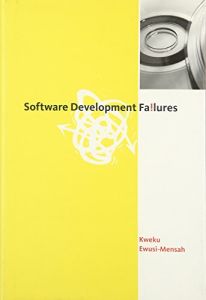Join getAbstract to access the summary!

Join getAbstract to access the summary!
Kweku Ewusi-Mensah
Software Development Failures
Anatomy of Abandoned Projects
MIT Press, 2003
What's inside?
Software development projects fail due to lack of goals, communication and skill, just like other projects, only costlier.
Recommendation
Here’s a two-ingredient recipe for disaster: take a big organization and mix in ambitious plans for a state-of-the-art software system. The disaster already happened at the IRS and Denver International Airport, both victims of software development missteps. Such failures are common, costly and all-too-avoidable, writes academic Kweku Ewusi-Mensah. While his prose can be dry, the examples he uses prove quite juicy. A little common sense could have saved the IRS billions and the Denver airport millions. Both fell victim to surprisingly basic pitfalls, such as unclear or unrealistic goals and over optimistic expectations that inexperienced people could get the job done. Ewusi-Mensah convincingly argues that organizations need to share such learning experiences, although he acknowledges that would mark a reversal from common practice. getAbstract.com recommends this book to managers and engineers involved in developing software. This cautionary tale could save your neck.
Summary
About the Author
Kweku Ewusi-Mensah is a professor of computer information systems at Loyola Marymount University.






















Comment on this summary